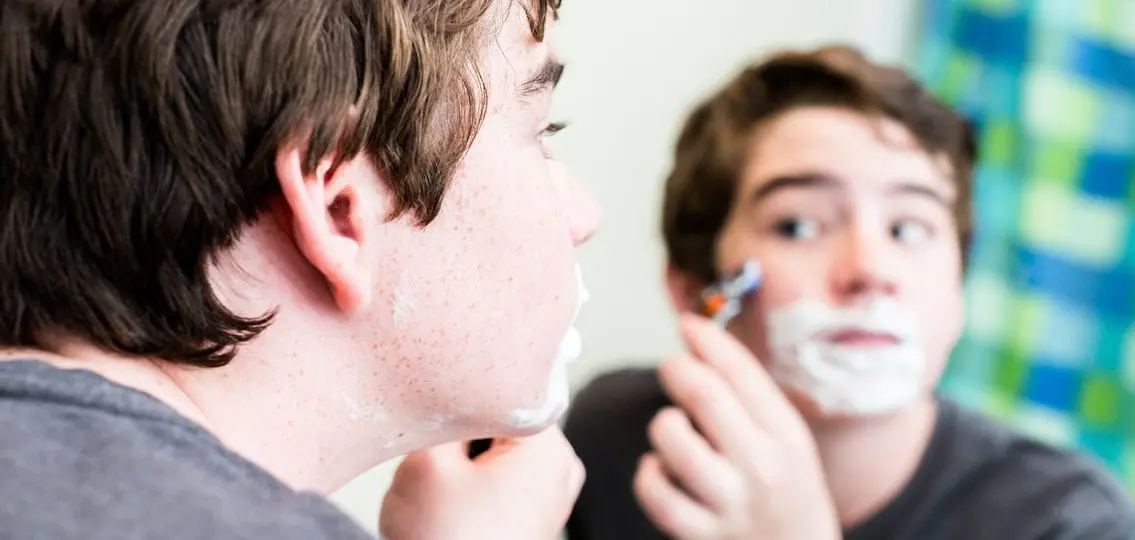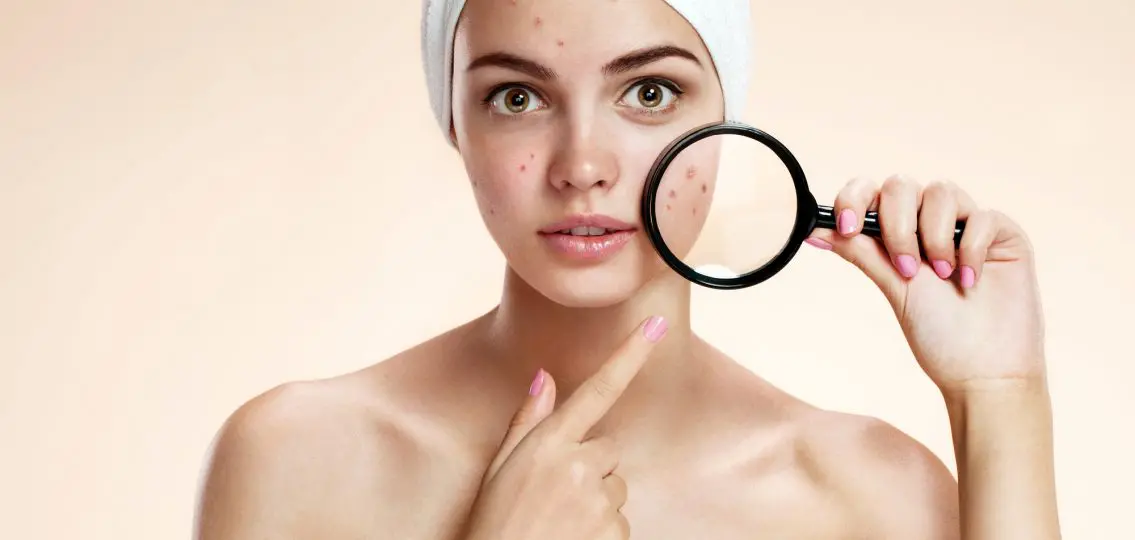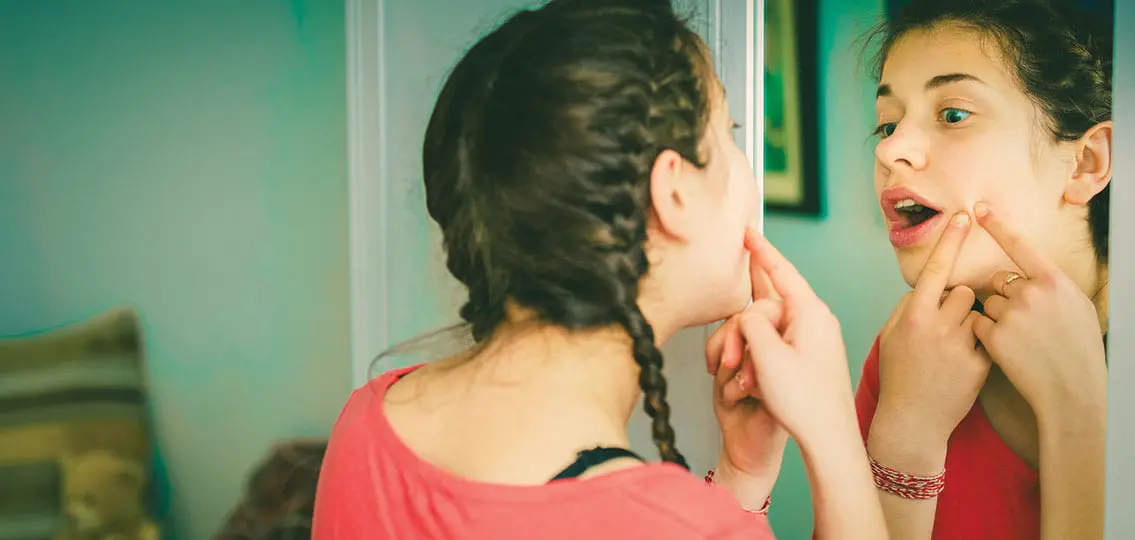Acne is a skin care problem for most teenagers—but the good news is that there are lots of treatment options available. Your Teen spoke to Dr. Barbara Reichert, a dermatologist with Nationwide Children’s Hospital in Columbus, Ohio, to learn about effective teen skin care.

Q: Are there any new developments in acne treatment?
Reichert: There are several new combination products which are very popular. Not too long ago, treatment involved doing several different things a few times per day, using a combination of pill, cream, and face wash. That can be a lot to remember.
Now we have a number of very effective combination products available that combine two active ingredients, such as a retinoid and an antibiotic, into a topical cream. Retinoids prevent dead cells from clogging pores and are considered the backbone of acne treatment regimens. Some common retinoids are adapalene or tretinoin. These work well with antibiotics such as clindamycin or benzoyl peroxide, which decrease inflammation caused by bacteria associated with acne.
Q: What about over-the-counter treatments?
Reichert: There are also vitamins and supplements being marketed specifically for acne. Some of these include zinc and nicotinamide, a form of vitamin B3. More research is needed to know just how effective these are for acne.
Q: What causes the onset of acne?
Reichert: Usually acne begins to develop either right before the onset of puberty or right as hormonal changes start to happen. The hormone testosterone (which is present in both boys and girls in different levels) activates the oil glands in the face, which produce the oils that clog pores. Certain bacteria on the skin thrive in an oily environment. These bacteria can cause inflammation in the skin, and that’s when we see those big, angry, red, inflamed spots.
Q: Can you explain how the milder types of acne are formed?
Reichert: The earliest lesions of acne are called comedones. These come in two types:
- Closed comedones—which is what we call the whiteheads or bumps that pop up on the face, neck, chest, and back when dead skin cells and oil form a plug. The plug blocks the follicles that enclose the roots of your hair.
- Open comedones—which are the blackheads that typically form on the sides and bridge of the nose, the chin, and, occasionally, on the shoulders and back. The tips of the blocked follicles remain open to the air, causing the sebum (the oil produced by glands in your skin) to turn black.
Q: What is the best way for teens to treat mild or occasional acne?
Reichert: The starting point for this type of acne is washing with water and a gentle facial cleanser. Washcloths can contain bacteria if you reuse them, so make sure to use a new, clean washcloth with every wash, or just use your hands. You can also use a mild, over-the-counter acne wash that contains either benzoyl peroxide or salicylic acid.
Exfoliating scrubs and rotating brushes are popular right now, but these products can sometimes be irritating to acne and even make it worse. Make sure every product you use on your face is non-comedogenic, meaning it won’t block your pores. This includes your makeup, facial moisturizers, sunscreens, and anything else that you apply to the face. Body lotions, for instance, should not be used on the face because they can clog the pores and make acne worse. If over-the-counter products don’t work, then it’s time to consult a doctor for stronger treatment.
Q: Can teenagers overtreat their acne?
Reichert: In a way, yes. If you are using too many products, washing with harsh soaps, exfoliating, or scrubbing your acne, you can actually make it worse. You can make your skin so dry or so irritated that you can’t even use the medicines that will actually help treat the acne. You should focus on using the product that is going to be most effective in actually treating the acne. Since many acne treatments can be drying to the skin, you may need to use very mild cleansers for washing the face and apply facial non-comedogenic moisturizers to treat any dryness or irritation.
Q: Are there natural treatments for acne?
Absolutely. First, eat a healthy diet. There have been many studies over the years to see if there is a link between acne and diet—specifically high-glycemic-index foods (that make blood sugar spike) and dairy. Some people’s acne may be very dependent on their diet, while others may not see much difference based on what they eat. It depends on the individual person.
Second, drinking lots of water is very important for healthy skin. Third, stress management seems to help control acne flare-ups for some people. Fourth—and this last one is easy—don’t sit around in sweaty clothing. If you have exercise or sports after school, shower and rinse that sweat off your face and body using a mild soap. Sweaty hair contains some of the same oils as skin, so keeping hair off your face can also help prevent acne.

Q: Are birth control pills effective for treating acne?
Reichert: Oral contraceptives can definitely help stabilize hormones and improve acne. But different formulations will have different types and levels of estrogen, which is the component of birth control pills that is thought to be effective against acne. Each person may respond differently to different forms of oral contraception, so finding the one that works for you is important. And some kinds of hormonal contraception—such as implants or IUDs—do not necessarily help with acne. Even with the pill, it’s still important to have a good skincare routine and healthy diet.




